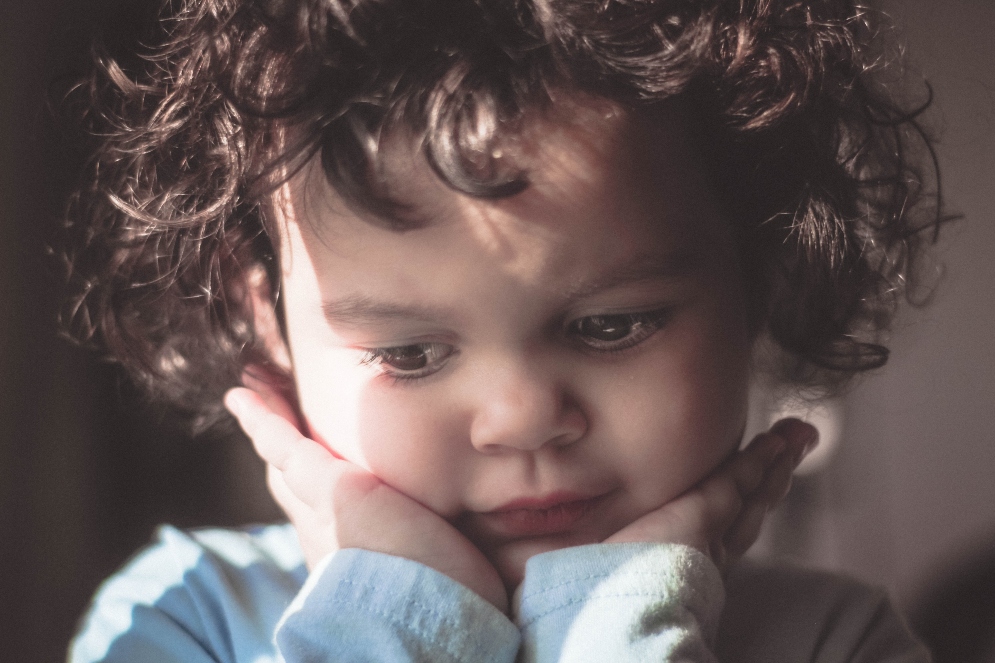It can be difficult to know where the borderline is between a difficult phase or what is normal for that child or young person and the beginnings of something more serious that may need further support. It is a grey and complex area that leaves many people feeling confused, anxious, wanting to help and support but unsure what is going on and how to help.
It may be:
- A child or young person has said something concerning or is acting in ways that are causing worry or alarm.
- It may be somebody else in the child’s life such as other adults or friends have voiced concerns that you were not aware of and you are trying to work out where to go from here.
- It may be the child or young person has approached you directly and asked for help and you are looking into different avenues for support and feeling lost and overwhelmed wondering where to start.
The fact you are here means you have already started.

Possible Signs
Things you might notice that could indicate a child or young person is struggling might be anything that deviates from how they are normally for them:
- Changes in mood. Seeming less happy or more sad, frequent irritability or crying for no apparent reason.
- Friendship issues
- Isolating themselves
- Low self-esteem/ confidence
- Wanting to impress others leading to risky behaviour
- Self-harming
- Eating too much/ too little
- An unexplained dip in school performance
- Quitting activities that they have previously enjoyed.
- Saying things that are concerning about themselves, such as they hate themselves or they want to harm themselves.
- Increased negativity towards self and others.
- Angry outbursts
- Lack of interest in things they might have previously been interested in
- Volatile or strained relationship with parents
- Stealing
- Getting into trouble
- Unexplained physical symptoms with no medical cause
- Frequent nightmares
- Paranoid or delusional thinking, hallucinations, hearing voices
- Sudden onset bedwetting or soiling.
- Being extremely clingy
It is important to look at the way the child or young person you are concerned about in the multiple contexts which they live, learn and play, such as home, school, other activities to try and build an overall picture of that child. It may be that some of your causes for concern are only seen in one context or even for one person, which might indicate something different than if the cause for concern is pervasive. They might be seen in multiple contexts. From this it might be possible to spot patterns or triggers. This is key detective work in considering what might be going on.

Questions to Consider
We might look at the challenges a child or young person is facing by considering what unmet needs may be present and what this tells us. All behaviour is communication. These might be some reflective questions you ask yourself about the child or young person whilst thinking about their needs.
- Are your concerns a recent development or have they developed over time?
- What are you aware of that is going on in the child’s life at this time?
- Are the child’s basic needs for food, shelter and warmth met?
- Are they at risk of harm or significant harm? If so what and by whom?
- Have there been any other interventions or support and if so what and how helpful was it?
- Are they usually contact seeking or contact avoidant?
- Is there a clear identifiable goal attached to their behaviour? (to gain access to something or someone)
- How comfortable are they expressing their needs and wants? Are they inhibited or disinhibited?
- Do they have a sense of belonging and feeling loved and accepted? Where and with who?
- Who is important in their life?
- How do they manage stress and emotional discomfort usually?

What Can Lead to a Child or Young Person Struggling?
There are multiple reasons why a child or young person may struggle at different ages and stages that may be exacerbated by challenging life circumstances. Every child, young person and their situation is unique and should be treated as such. What one child may sail through another may really struggle with and it is important we can listen to and validate children and young peoples distress, regardless of whether as adults, we feel other people have it worse, it isn’t that big a deal, it wasn’t that bad, it is been turned into something it wasn’t or that we see it differently. This can also feed into unhelpful narratives around ‘grit,’ and ‘resilience.’ Sometimes adults can be quick to label a child or young person's distress behaviours as ‘attention seeking,’ which can be then used as an excuse to not give the child attention and support at a time they need it the most.
Issues that may lead to a child or young person struggling can be multiple and varied.
These may include but are not limited to:
- Abuse
- Neglect
- Parents separating/ divorcing
- Conflict in the home
- Domestic violence
- Children being caught in the middle of family conflict.
- Having a family member in prison
- Having a family member with a mental illness
- Drug or alcohol addiction in the family
- Death of a close family member
- Death of a friend
- Death of a pet.
- Witnessing/ living in the shadow of community violence
- Poverty
- Experiencing racism/ racial discrimination
- Being neurodiverse in neurotypical world
- Having undiagnosed learning needs
- Identifying as LGBTQQIP2SAA and experiencing invalidation/ lack of understanding/ acceptance, discrimination or abuse.
- Being bullied/ cyberbullying
- Experiencing online harms
- Performance or exam stress
- Being a young carer
- Chronic illness
- COVID19 pandemic
- Being involved in an accident or victim of crime.
There may be others that are specific to your child or young person. There may be a combination of reasons. Just because a child may have experienced one or more of these does not automatically mean that they will struggle emotionally. If a child has the right support around them the effects may be ameliorated. Equally all the support in the world does not automatically mean a child will be fine.

Just because as adults we might perceive something differently does not mean it is the same way the child or young person experiences it or lets us believe they experienced it. Sometimes children and young people try to protect adults from how they really feel about a situation, if they are even aware of it.
The most important thing is to listen deeply to what the child or young person is telling you either verbally or through their behaviour and to know them well enough to know when something does not feel quite right. Trust your instincts. Sometimes children and young people struggle to articulate their distress and need for it to be noticed and approached that way as they might feel too embarrassed or ashamed to reach out. Even then, they might initially reject the support offered.
Some adults delay seeking support because they find it hard to accept what is happening and adopt a ‘wait and see’ approach, which can have value to allow time to observe, however early intervention through timely appropriate support can make the world of difference in enabling a child or young person to stand the best chance of being able to work through the challenges they are facing.
Having identified possible concerns and considered the context the child is in, the next step is sourcing professional support. What this will look like is individual to each child, young person and situation. It may be the complexity of needs requires a multidisciplinary approach where there are multiple practitioners involved. It may be there needs to be a specific intervention. If you suspect undiagnosed neurodiversity then you would need a neurodevelopmental assessment. If you suspect a learning difficulty you might need an educational psychologist. If your child is struggling emotionally you might consider the services of a children’s therapist. If you are confused about the array of professionals please check out our guide to who’s who in multidisciplinary practice.
When considering professionals to support a child it is important that you look into their qualifications, membership of a professional body and experience working with children and young people. All the individual professionals listed in The Sunflower Directory have undergone a rigorous vetting procedure to confirm that they meet the highest standards in order to ensure your child is in safe, appropriately qualified and experienced hands. For more information about the criteria The Sunflower Network requires everyone to fulfil, please click here. Whilst this alone does not mean they will be the best fit for your needs, it is an essential safety net that is vitally important in therapeutic practice.
Practitioners should be registered with an appropriate professional body and hold a qualification that is specialised to their work. There are differences in the training adult therapists receive to the specialism of therapeutic work with children and young people. Do not be afraid to ask potential therapists questions about their training, experience, qualifications, professional memberships, and request to see DBS, professional membership identification cards and qualifications. They should be open to this conversation and willing to share these with you.
With the right support children and young people stand the best chance of being able to work through the challenges they are facing.
The Sunflower Network provides a platform for professional community members to publish articles on this website. The views expressed in this article are those of the article author.

